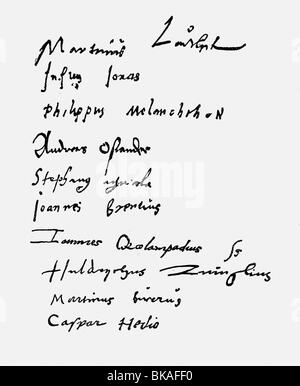

Political religious and social consequences of Reformation.

Causes of the Reformation – the spark and the issues – religious, political.Doctrines of Luther and Calvin compared to the Roman Catholic Church.Machiavelli and the New Monarchs in England, France and Spain.Renaissance and the roots of Humanism – Petrarch, Dante.Feudalism: agriculture, guilds, kings versus nobles, kings versus popes, popes versus cardinals.

A list of these documents follows the topic lists for each Unit. Throughout the year documents will be used for insight and analysis of the social, economic, religious, intellectual, artistic & political expectations and conditions of the time.
Unit exams including either a thematic or document based essay. Throughout the year students in this course are required to research and prepare for a variety of assignments including: Global Passages: Sources in World History. Ninth Edition, New York: Knopf Publishing Group. Palmer, R.R., Joel Colton, and Lloyd Kramer. develop and demonstrate effective writing and oral communication skills. regularly analyze, interpret and apply primary source evidence and literature in addition to reading college level texts. discover and account for the various factors leading to changing zeitgeists in elite and popular culture. understand and account for the above changes in relation to the chronology of major events, and leaders as well as social and special interest groups. develop and demonstrate an understanding of changes in the social, political, religious, intellectual, artistic, technological and economic trends and forces that shaped European History from approximately 1450 to the present. Students enrolled in Advanced Placement European History are expected to: Tuttle, Alicia - Family & Consumer Science. Pressley, Angela- Special Education Teacher. Perez, Angela- Bilingual School Social Worker. Arkans, Joanna- Library Media Specialist. Īt the later Diet of Augsburg the Zwinglians and Lutherans again explored the same territory as that covered in the Marburg Colloquy, and presented separate statements which showed the differences in opinion. Because of the differences Luther initially refused to acknowledge Zwingli and his followers as Christians, though following the colloquy the two Reformers showed relatively more mutual respect in their writings. Zwingli, who emphasized the distinction of the natures, believed that while Christ in his deity was omnipresent, Christ's human body could only be present in one place, that is, at the right hand of the Father. Luther emphasized the oneness of Christ's person. This was possible because the attributes of God infused Christ's human nature. Luther believed that the human body of Christ was ubiquitous (present in all places) and so present in the bread and wine. Underlying this disagreement was their theology of Christ. On this issue they parted without having reached an agreement. The ColloquyĪlthough the two prominent reformers, Luther and Zwingli, found a consensus on fourteen points, they kept differing on the last one pertaining to the Eucharist: Luther maintained that by Sacramental Union, the consecrated bread and wine in the Lord's Supper were united to the true body and blood of Christ for all communicants to eat and drink whereas, Zwingli considered bread and wine only symbols of the body and blood of Christ. Philipp hoped that rapport with Luther would lead to an alliance with Protestant princes and so strengthen his position against the Roman Catholic forces threatening him. See also: The Sacrament of the Body and Blood of Christ-Against the Fanatics Besides Luther and Zwingli, the reformers Johannes Agricola, Johannes Brenz, Dan Bornfeld, Martin Bucer, Caspar Hedio, Justus Jonas, Philipp Melanchthon, Johannes Oecolampadius, and Andreas Osiander participated in the meeting. Philipp's primary motivation for this conference was political he wished to unite the Protestant states in political alliance, and to this end, religious harmony was an important consideration.Īfter the Diet of Speyer had confirmed the edict of Worms, Philipp I felt the need to reconcile the diverging views of Martin Luther and Huldrych Zwingli in order to develop a unified Protestant theology. The leading Protestant reformers of the time attended at the behest of Philipp I of Hessen. It took place between 1 October and 4 October 1529. The Marburg Colloquy was a meeting at Marburg Castle, Marburg, Hesse, Germany which attempted to solve a dispute between Martin Luther and Huldrych Zwingli over the Real Presence of Christ in the Lord's Supper. Marburg Colloquy, a colored woodcut, 1557







 0 kommentar(er)
0 kommentar(er)
